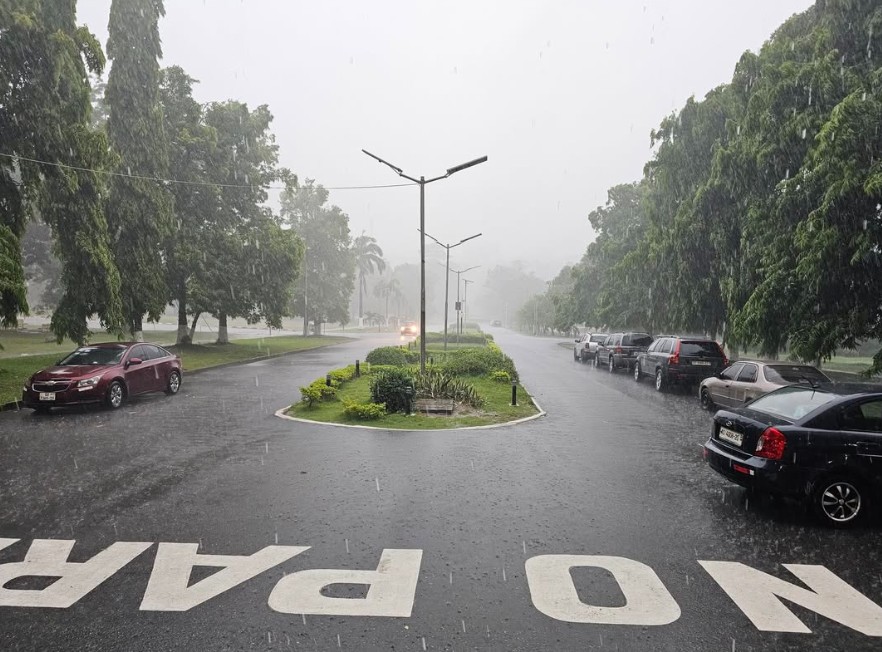The Kwame Nkrumah University of Science and Technology (KNUST) is a key partner in a climate research initiative aimed at improving weather warnings and protecting Ghana’s energy sector from storm-related risks.
As part of the EW4Energy project, KNUST is collaborating with the University of Leeds and other institutions to develop advanced tools and train a new generation of scientists equipped to tackle the country’s climate challenges.
The EW4Energy project seeks to enhance storm prediction and early warning systems by installing ground-based lightning observation sensors across Ghana. These sensors will provide critical data for forecasting extreme weather events, particularly for the energy sector, which is highly vulnerable to lightning and storms.
“This is a chance to turn cutting-edge science into real-world impact,” said Dr. Jeffrey N. A. Aryee, Lecturer and Research Scientist at KNUST and co-lead of the project. “With EW4Energy, we’re not just enhancing early warnings; we’re building resilience in our energy systems and communities.”
The initiative aligns with the United Nations’ Early Warning for All campaign and will utilize high-frequency lightning data from the new Meteosat Third Generation satellites. The team will also test the FASTA (Forecasting African Storms Application) app to deliver real-time storm predictions tailored to local needs.
EW4Energy brings together several key partners, including the Ghana Meteorological Agency (GMet), University of Cape Coast, the UK Centre for Ecology and Hydrology, the University of Leeds, and KNUST. The project builds on earlier collaborations such as the African SWIFT project, which enhanced impact-based weather forecasting in Ghana.
Dr. Michael Baidu, a Ghanaian-born research fellow at the University of Leeds and project co-lead, emphasized the importance of local partnerships.
“Having studied at KNUST and worked with GMet, it’s inspiring to be part of a project that brings world-class research back home to drive meaningful change.”
The project also serves as a platform for capacity building, offering industrial internships and research opportunities for students from KNUST and other institutions. PhD students will pilot new AI-based nowcasting algorithms in Ghana, aiming for faster and more affordable storm predictions.
Educational outreach is a major component, with programs targeting secondary schools to encourage careers in weather forecasting, particularly among young women. At the university level, KNUST and others will offer training in coding, programming, and machine learning to equip students with skills vital for the future of climate science.
EW4Energy is also linked with the WISER Early Warnings for Southern Africa (EWSA) project, which brings together scientists, forecasters, and local communities to co-develop effective early warning solutions.
This piece is adapted from the article “Enhancing Weather Warnings in Ghana,” published by the University of Leeds, UK.
Find out more here: https://www.leeds.ac.uk/main-index/news/article/5764/enhancing-weather-warnings-in-ghana

















